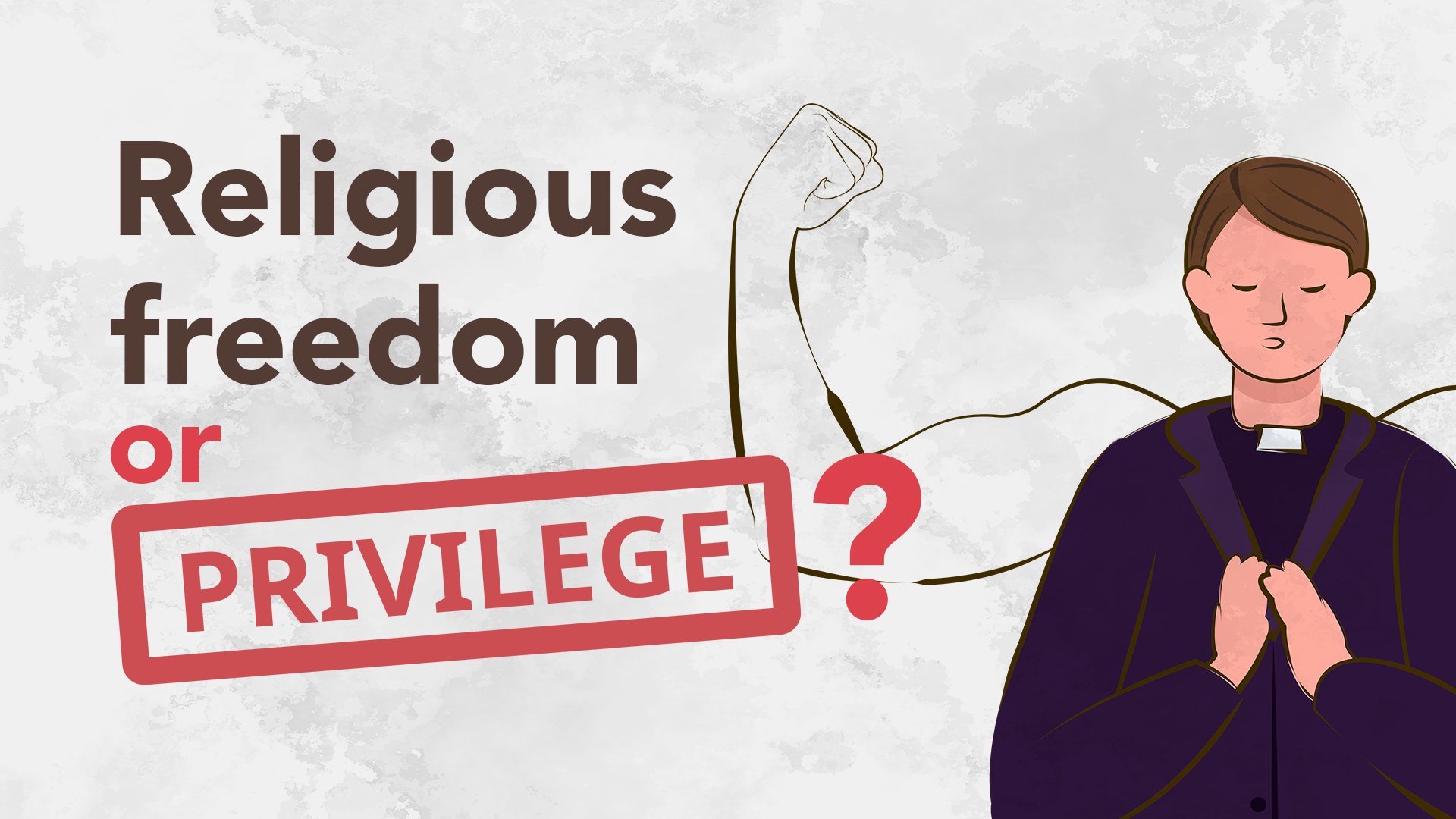You're in a conversation and someone says, "The kind thing to do when someone tells you their pronouns is to use them. We should practice ‘pronoun hospitality.’”
What would you say?
As more people have become convinced that "gender" is fluid, we find ourselves pressured to affirm every chosen identity. This includes using someone's preferred pronouns.
This video explores three things to consider when discussing preferred pronouns.
You're in a conversation and someone says, "The kind thing to do when someone tells you their pronouns is to use them. We should practice ‘pronoun hospitality.’”
What would you say?
As more people have become convinced that "gender" is fluid, we find ourselves pressured to affirm every chosen identity. This includes using someone's preferred pronouns. Not to use someone's pronouns, we’re told, is misgendering them, denying their existence, or even committing an act of violence. Certainly, refusing to use the pronouns someone demands can be risky, so shouldn't we just do it as an act of kindness?
No, and here are three reasons why:
1: Words have meaning, and reality is not a social construct.
At the heart of transgender identity is the belief that the way people feel inside is more important than facts about their bodies. If they think there’s a mismatch between their sex and sense of self, transgenderism says the sense of self is more authentic—so much so that people have a right to demand that external reality conform to their internal sense of self.
One of those external realities they might seek to conform with the help of doctors is their own bodies. Another is the language others use to talk about them. He might request that family, friends, and coworkers refer to him as she. She might demand to be called him. An individual might even expect to go by they and them. But just as attempts to conform someone’s body to a feeling of the opposite sex results only in mutilation, referring to people with inaccurate pronouns doesn’t make them that sex, either—it just mutilates our language and promotes a damaging belief.
In order for words to be meaningful, they must correspond to reality. Feminine pronouns refer to women. Masculine pronouns refer to men. Using them for the opposite sex undermines the connection between language and facts as much as saying “the sky is green” or “war is peace.” These external realities to which words refer are not social constructs and are not subject to personal preference. When we act like they are, we do not convey meaning: we destroy it. Another word for that is lying.
2: Lies are not loving, and we shouldn’t live by them.
The most basic requirement of loving others is telling the truth about them. But when we refer to someone using pronouns that don’t correspond to his or her sex, even at that person’s request, we are not telling the truth. We are lying. And lies are not loving.
To illustrate this, imagine you had a friend with an eating disorder who was dangerously underweight, but sincerely believed that she was overweight, and wanted you to affirm her belief. Would it be loving to agree with her that, yes, she is obese and needs to lose many pounds? Of course not! That is a lie, even though she asked you to tell it, and it’s profoundly dangerous to her health to believe it or be treated as if it’s true.
In the same way, it is not loving to refer to a person who was born a woman as he or him, or even to obscure that person’s sex by only using the plural pronoun they. This is especially true in a time when transgender ideology has made inroads into the medical profession.
Unlike someone with an eating disorder, who will never be able to convince a doctor she’s overweight, a woman who believes she is a man can find doctors and surgeons who will help her impose this lie on her body. This may lead to amputating healthy organs and flooding her system with hormones like testosterone—with serious consequences. All because of a lie and the people who knew better but were willing to repeat it.
3: When honesty allows, it’s okay to avoid this conflict.
We shouldn’t live by lies, and this means always refusing to use inaccurate pronouns, even when someone we love asks us to do so, an employer demands we do so, or a law requires us to do so. But not everyone finds themselves in this situation, and we shouldn’t go looking for a fight over pronouns.
Often, it’s possible to preserve a relationship or avoid a visit to human resources simply by referring to a person using his or her name. Some people who identify as transgender are even okay with this, and names are not tied objectively to one sex like pronouns are. If it doesn’t require lying, and if your conscience allows it, there is no reason you should go out of your way to offend someone by using pronouns that person has rejected.
Christians are not called to reject people who consider themselves transgender, but rather to reject the lies about those people, even if they, themselves, believe the lies. God calls us to maintain a strong commitment to telling the truth while still loving people for who they really are: Men and women made in the image of God.
So, the next time someone says, “You should use the pronouns a person prefers, even if they don’t correspond with that person’s sex,” remember these three things:
1: Words have meaning, and reality is not a social construct.
2: Lies are not loving, and we shouldn’t live by them.
3: When honesty allows, it’s okay to avoid this conflict.
Sources cited in this video:
“Doctors Protecting Children Declaration,” Doctors Protecting Children, accessed June 25, 2024, https://doctorsprotectingchildren.org/
Additional Resources:
https://identityproject.tv/
"The Identity Project is a comprehensive library of videos and other resources addressing issues of identity, sex, “gender,” and sexuality from a Judeo-Christian worldview, featuring world-class experts."
https://breakpoint.org/repenting-of-trans-pronouns-true-love-requires-true-language/



 Colson Center
Colson Center


